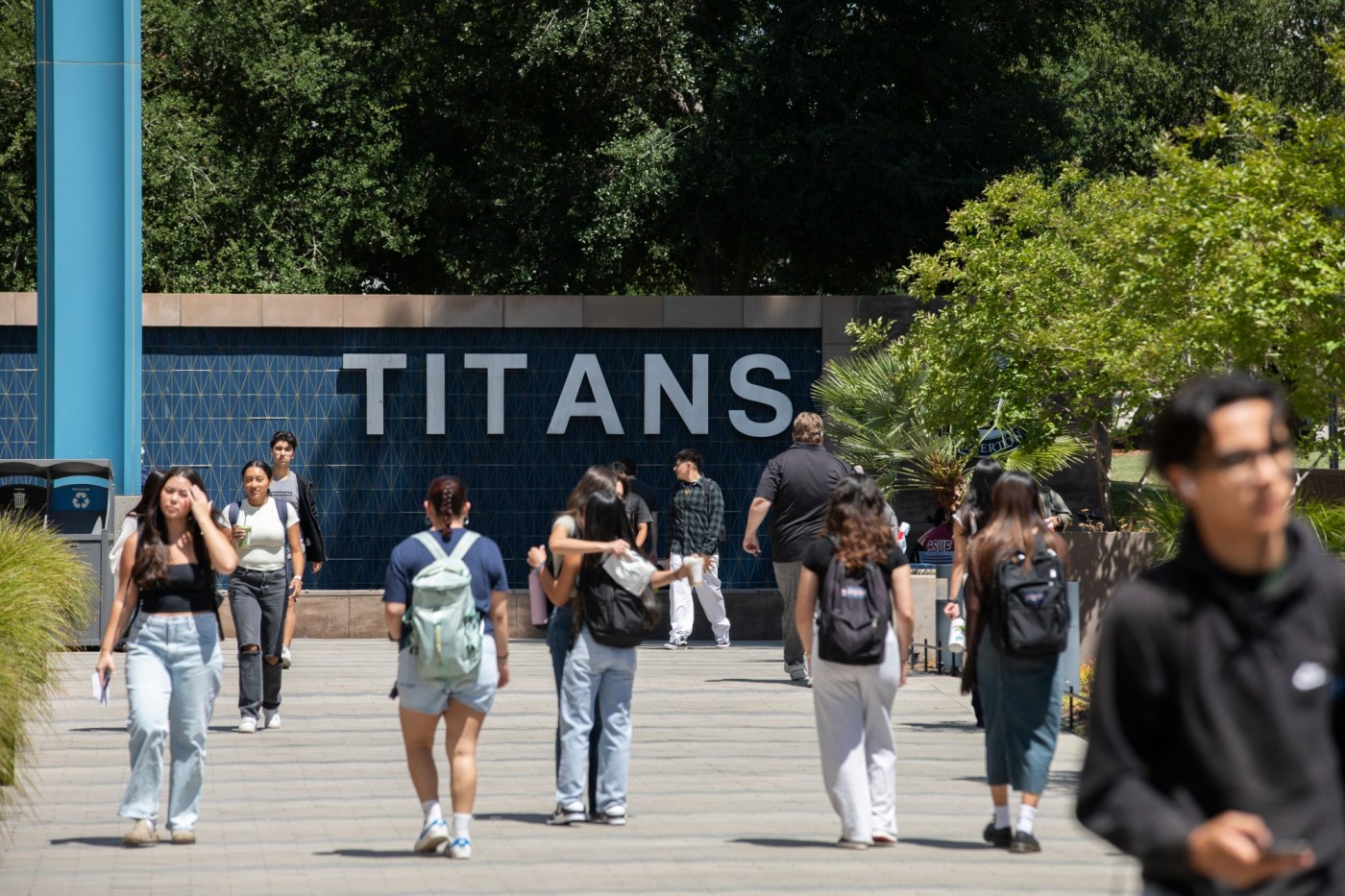Students in Cal State Fullerton’s Master of Social Work program now have access to a new credential pathway that expands career opportunities and prepares graduates to make an impact at schools in their communities.
Beginning this fall, CSUF is offering a Pupil Personnel Services Credential in School Social Work and Child Welfare and Attendance, the only credential of its kind offered at a public university in Orange County, according to the program’s coordinator.
Graduate students who are interested in a social work career in California public schools will be able to complete the coursework and practicum hours required for the credential while at CSUF.
“Anybody who wants the title of school social worker in a school district, they’re going to need to have this credential,” said Gordon Capp, CSUF associate professor of social work and credential program coordinator. “So this allows them the opportunity to go out and find those jobs.”
Before this pathway was introduced, Titan students pursuing a school-based social work career completed their 600 required practicum hours through CSUF’s MSW program but then had to take an additional course at another institution, adding both time and cost.
“A lot of the reason we wanted to do this is that we already had students who wanted to and they weren’t able to do it at Cal State Fullerton,” Capp said. “So this means that they don’t have to spend the extra money or the extra time, as it will be integrated into their MSW degree.”
CSUF’s MSW degree is housed under the College of Health and Human Services and is offered either as a two-year program for full-time students or a three-year flex program. Students often enter the master’s program with undergraduate degrees in areas such as sociology or psychology.

Midway through the first year, students select practicum sites for their final year. At that stage, those interested in school-based social work indicate their preference for a school placement as their advanced-year practicum. The required elective courses for this pathway include Social Work Perspectives in Child Psychopathology and Family Context and Social Work Practice in School Settings.
“We know that there are escalating levels of mental health needs on school campuses,” Capp said. “If we want students to be able to be successful academically and socially, they have to be mentally healthy. I think this is a baseline kind of thing that we need to support.”
The required curriculum and practicum hours not only prepare the graduates to serve preschool through 12th-grade students, but their families, as well.
“Part of the work we do that is equally critical is that we’re supporting families so that they can be happy and healthy and get their kids to school,” Capp said.
Capp also stressed the need for school-based social workers as a support for teachers, allowing them to focus on instruction while ensuring that students’ mental health and emotional needs are addressed when needed.
“Mental health needs in classrooms are challenging and difficult,” Capp said. “So the role of the school social worker to come in and support the nonacademic side of things is critical. There is a clear need for that.”
Developed as a joint effort between the College of Health and Human Services and the College of Education, the proposal, which was originally conceived more than three years ago, was approved in June by the California Commission on Teacher Credentialing.
“We work really closely with the College of Education, as they are the primary credentialing body on campus,” Capp said. “They’ve been an incredibly supportive partner as we have worked with the CCTC to get our proposal approved … and they’re continuing to be very supportive as we implement this and get it going.”
The pathway’s first cohort, which began this fall, includes nearly 30 students, and Capp envisions expanding enrollment as interest grows. Drawing on his background as an elementary and middle school teacher and his longstanding interest in mental health at schools, he recognizes the importance of preparing graduates to serve the community in this specialized role.
“We continue to see increasing levels of anxiety and depression in kids and in teenagers,” Capp said. “This is one of the ways that we can respond to that by making sure that we have a well-trained and qualified workforce that’s ready to encounter those folks within the unique context that is a school and provide those services. … It’s definitely exciting to be approved and to have a cohort of students who are excited to get into schools.”
